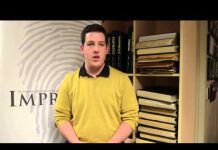The University of Waterloo announced $15 million in new federal research funding March 16. The money is split between strategic project grants from the Natural Sciences and Engineering Research Council of Canada (NSERC) and annual generalized research funding from the Federal Research Support Fund. NSERC approved 11 three-year grants for UW research projects, a number rivalled only by the much larger University of Toronto and McGill University. Together, the grants make up over $5.3 million of the total announced funding.
The grants average over $484,900 and range from $216,500 for Dr. Niels Bols’ study of feed additives for aquaculture to $590,382 for Dr. Ian Goldberg’s work looking at “Rigorous Privacy-Enabled Interactions with Online Information.” The money from a large grant like those from NSERC can mean the difference between a project succeeding or not happening at all. Grants received also tend to play a part in the growth of academic careers and perceptions within academia of departments and schools.
“Our success rate at Waterloo is higher than most other universities,” said UW vice president of university research George Dixon. “It really speaks to our ability to generate research funding and recognition of the quality of the research we do.”
Each strategic project grant is given by NSERC to facilitate university-industry partnerships. Projects must be within the “target industries” defined by NSERC as areas of research that would provide major strategic and economic benefits. The grants pay primarily for graduate student work, which, given the length of the projects, adds up significantly over time.
“These grants support the research of the faculty members involved, and that really means support for the graduate students working on these projects,” said Dixon. “Probably about 80 per cent of the money is spent on graduate student stipends and to support graduate student research. Effectively research funding like this is the backbone of how research projects in science and engineering are supported.”
The kinds of studies supported by these grants are clustered around research in wireless communication, encryption, motor vehicle technology, aquatic sciences and alternative energy. Most of these areas have a long history of research in UW.
Grant applications can be both complicated and time consuming. One of the functions of the Office of Research is to assist faculty in budgeting their research and applying for grants, the conditions of which may change over the years. The office also maintains the accounts for researchers, performs ethics reviews and serves as the overseer of research infrastructure at UW. The money from the Federal Research Support Fund also goes through the office to the provost, which is used as general funds to facilitate research as a whole on-campus to cover the indirect costs of research. The amount, which exceeded $9.6 million this year, is calculated as 17 per cent of the total annual research funding from the tri-councils: NSERC, the Canadian Institutes for Health Research, and the Social Sciences and Humanities Research Council. This means that UW’s funding from those three councils will exceed $56 million in 2015.
“That covers costs that are not covered in direct research funding,” said Dixon. “Support of the library — because if you’re going to have a research program you’re going to need the appropriate levels of library infrastructure — information and computer technology, electricity — you have to remember that a lot of research is hugely energy intensive.”
The new NSERC grants will join those still underway, awarded as three-year projects in both 2013 and 2014. All things considered, 2015 will see direct funding from NSERC going to 21 different research projects at UW totalling nearly $100 million.































